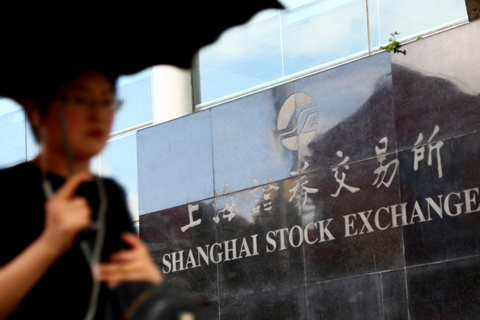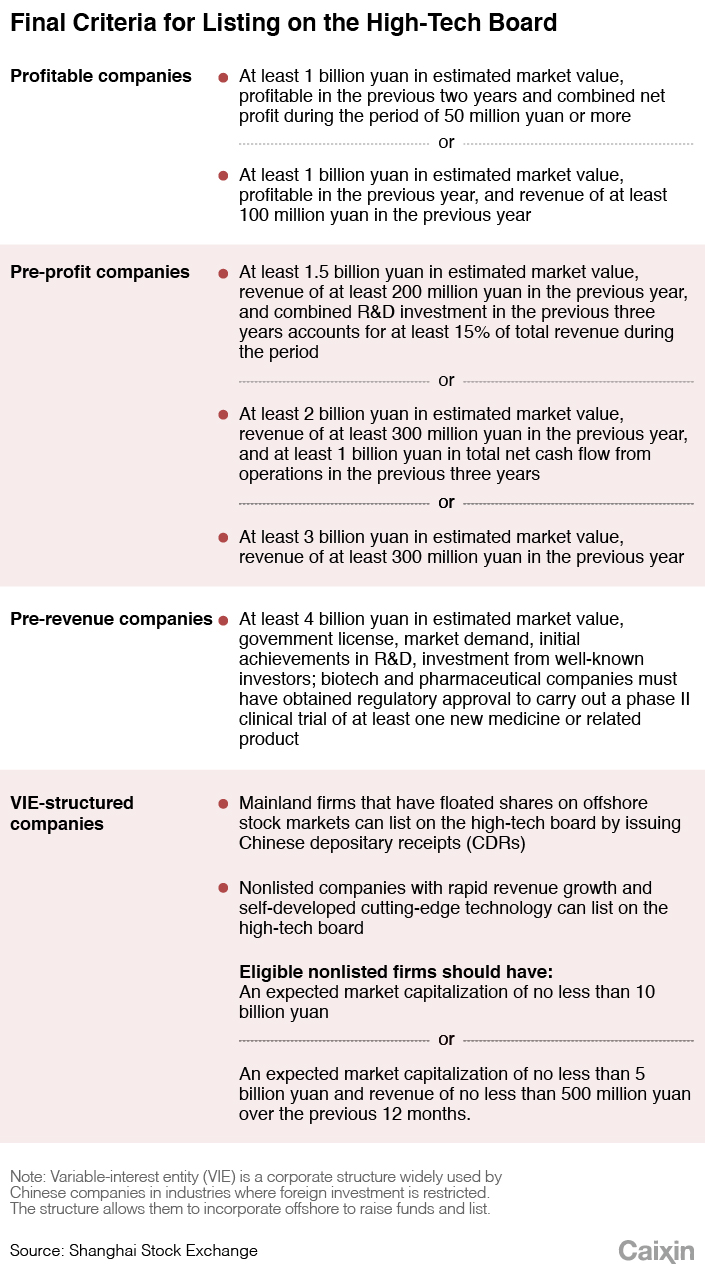China Speeds Final Rules For Start Of New High-Tech Board

China’s securities watchdog released the final version of rules governing the country’s new Nasdaq-style high-tech board in the middle of the night, the latest in a series of fast-paced developments that highlights the priority regulators place on creating a capital market that will serve as a financial incubator for the country’s innovative technology firms.
The preparation and launch of the new board has been on a fast-track since it was first announced by President Xi Jinping last November, as it’s seen as a testing ground for major changes in the way the country’s existing stock markets are run, including a registration-based initial public offering (IPO) system. Registration-based IPOs would simplify the lengthy approval process that companies must now go through before they can float their shares in mainland market.
In January, only three months after Xi’s announcement, regulators released draft rules on how the market should operate and opened them up for public comment until Feb. 20. In little more than a week, the China Securities Regulatory Commission (CSRC) revealed the final version of the much-anticipated rules.
The final rules clarify the listing criteria for non-listed companies that have structures similar to variable-interest entity (VIE) arrangements. VIE structures are designed to get around Chinese rules restricting foreign investment and ownership in certain sectors, including internet businesses and value-added telecommunications services. Alibaba Group Holding Ltd. and Tencent Holdings used this structure to list offshore. The rules allow non-listed VIE-structured companies with rapid revenue growth and self-developed cutting-edge technologies to list on the board, and require them to have an expected market capitalization of no less than 10 billion yuan ($1.5 billion), or an expected market capitalization of no less than 5 billion yuan and revenue of no less than 500 million yuan over the previous 12 months.
The final regulations also shorten the anti-dumping lock-up period for shares owned by core technical staff of the listed firm to 12 months from previous three years, to provide an incentive for the company to increase innovation and research.
The regulators didn’t change the requirement that underwriters of an initial public offering (IPO) buy through a subsidiary some of the new shares they help to sell and hold that stock for a certain period of time. The requirement is compulsory, Caixin has learned, with the sponsor’s subsidiary required to buy 2% to 5% of the initial issue volume and hold it for two years.
The requirement aims to ensure that brokerages conduct proper due diligence, price the issue fairly, and select only the best companies to sponsor for the high-tech board. However, it has sparked concern among securities firms because it exposes them to a huge risk if the stock they are required to buy loses value during the holding period.
The final rules also maintain the bar for eligible investors relatively high. People who want to buy stock listed on the high-tech board must have had a daily average balance of at least 500,000 yuan ($74,000) in their securities account over the previous 20 trading days before filing an application to open an account to trade on the new board. They must also have a minimum of 24 months’ experience trading securities.
There are some 3 million individual A-share account holders who meet the investment requirement, with the entry requirement for investors set out of consideration for the risk appetite and the liquidity of the board, according to the Shanghai Stock Exchange (SSE). The exchange also explained that investors who fail to meet the requirement can buy shares listed on high-tech board through mutual funds.
A widely discussed T+0 trading mechanism, under which the settlement date of a security transaction would occur on the same day as the transaction, is not included in the final rules. The SSE said it’s not included because it wants a smooth start for the launch.
In an effort to kick off trading on the new board as soon as possible, other preparations are underway. Caixin earlier reported that the SSE, which will host the new high-tech board, has completed the recruitment of staff, with the new employees expected to start work in mid-March.
There is also an ample pipeline of candidates to be the first high-tech board listings, the regulator hinted. Most are involved in emerging technologies, biotechnology, high-end manufacturing and new materials, said Huang Hongyuan, chairman of the Shanghai Stock Exchange, in a media briefing on Feb. 28. Many of the firms have invested heavily in research and development, and are based in Beijing, the Pearl River Delta, the Yangtze River Delta, Wuhan in central China, the southwestern city of Chengdu and the north China city of Xi’an, he said.
 |
The story has been corrected to reflect that the new listing criteria added in the latest rules are pointing at companies with non-listed VIE-structured firms, not red-chip firms.
Contact reporter Leng Cheng (chengleng@caixin.com)

- 1Cover Story: China Carves Out a Narrow Path for Offshore Asset Tokenization
- 2Drownings Shake Chinese Enthusiasm for Travel to Russia
- 3China Business Uncovered Podcast: A $15 Billion Bitcoin Seizure and the Fall of a Cybercrime Kingpin
- 4Over Half of China’s Provinces Cut Revenue Targets
- 5Li Ka-Shing’s Port Empire Hit by Forced Takeover Amid Panama Legal Dispute
- 1Power To The People: Pintec Serves A Booming Consumer Class
- 2Largest hotel group in Europe accepts UnionPay
- 3UnionPay mobile QuickPass debuts in Hong Kong
- 4UnionPay International launches premium catering privilege U Dining Collection
- 5UnionPay International’s U Plan has covered over 1600 stores overseas






